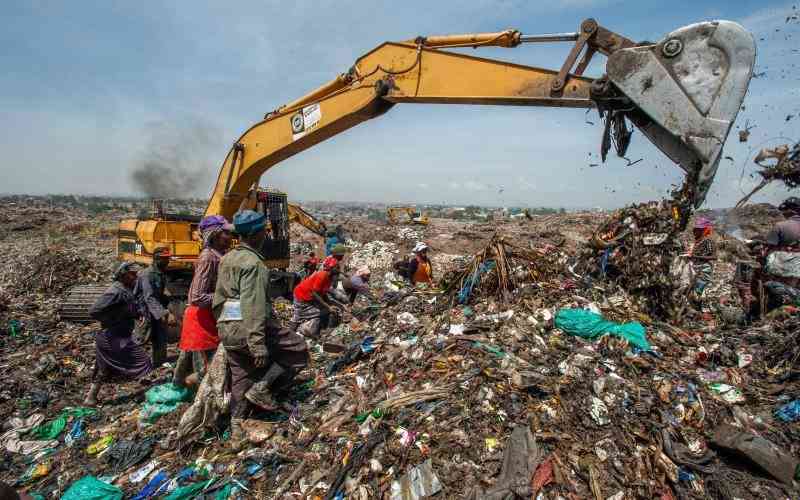×
The Standard e-Paper
Stay Informed, Even Offline

Residents of Dandora, Nairobi Kenya rush to salvage waste materials near an excavator on February, 14 2022. [Gerald Anderson, Standard]
As cities get denser, waste management is a topic that cannot be ignored at any cost.